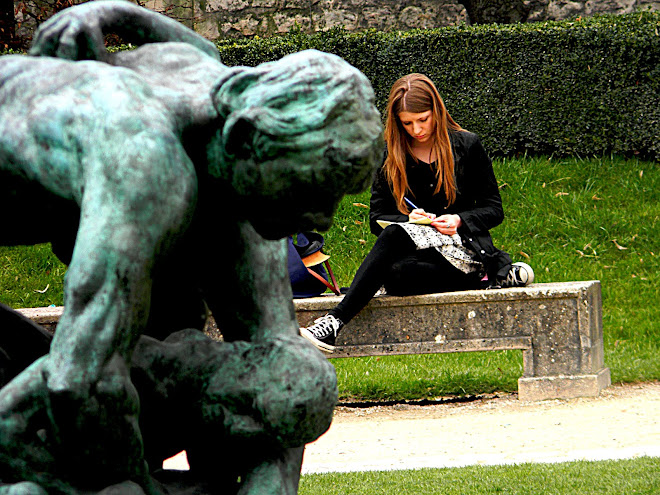Dear France,
We
both knew this was coming, no matter how much we liked to pretend otherwise,
but I guess I will be the one to say it.
It’s not you. It’s not me
either. It’s just time. You and I are both such hopeless romantics;
we liked to pretend that love is always enough.
And, trust me, I really wish it was.
You
understand me in a way no one else ever has and when I’m with you I am my very
best self. And I love you for that. And I love you for the little things too, like
how you don’t mind if I order a pichet of wine at lunch or if I want to eat
olives and cheese for dinner or if I like to take my top off when I’m
hiking. And I love how you would always
sit with me by the sea. (Remember the
first night we drank champagne together?)
And I love how you always encouraged me to be in the moment, whether it
was closing my eyes and just giving into a feeling or ordering some rose and violet
flavored gelato because you know it was my favorite.
You
should know that I cried when I left you, not just because I was sad to leave,
but because I was worried that I would never be as happy or hopeful or alive as
I was with you. And I still worry that
almost every day but I don’t think that is a good enough reason for us to try
to make this long distance thing work.
The
truth is that love is not always enough.
Timing might not be everything but it is unfortunately something very
important. Remember, we talked about
this? There are different kinds of love
and probably a few different people that could be right for each of us. In the end it comes down to timing. And time
was never on our side. We started a love
affair with a deadline, an end date, already arbitrarily set in stone. But maybe that’s what made the time we did
have together so wonderful?
I
know Shakespeare wasn’t French and I know Romeo and Juliet were Italian but it
seems it would be a rather French thing to do if I were to quote them in order to
make a point. So let me make a point. Remember how Romeo said that thing to Juliet
about how partings are such sweet sorrow that he would like to say goodnight
until it be ‘morrow? Well, our parting
was the sweetest sorrow of my life thus far.
And, really, it’s like we were saying goodbye from the very first moment
that we realized that we had something special together, practically from the
very beginning. The love and loss were
entwined and inevitable and I think each made the other all the sweeter, all the
sadder.
I
used to tell you that I was nostalgic for the present, remember? But you didn’t understand. Language barriers and whatnot… What I meant was that even though we were
together in the moment, I was already missing it – missing you. I was preemptively mourning the loss of how I
still was.
And
I was so happy. I really was.
And I really loved you, just
like I said I did. And I still like to
hope that maybe someday we will get a second chance to be together. But for now there are other places that I
need to be so we have to breakup because I need to be free to go to these
places – these new relationships – wholeheartedly. Right now you’re still holding a bit of my
heart and I love you but I need it back.
I
know it’s ironic. I fought so hard against
even giving you my heart in the first place.
When we first met I didn’t even like you very much. I said you were too simple. And what I meant was that it would be too
easy for me to love you and I preferred a challenge. My first love was Chicago, after all. That city is one big case of Seasonal Mood
Disorder. It’s all hot and cold, black
and white, hipsters and gangsters, rock and rap... Loving Chicago was always a fight and I
wanted to win, but that kind of love beat me down so I ran to you. And I was right. Loving you was so easy. You understood my habit of being perpetually
late and you appreciated my sense of adventure.
But it was deeper than that, more innate… It was like I knew you before I even met you
and then when I met you I recognized a part of myself in you.
If
the timing was different I would call us soul mates, but since the timing is
what it is – and in our case it’s past – I will say that you and I are kindred
souls. And I will say that though I am
breaking up with you, and though we will both move on and see other people, my
soul will always understand yours. And I
hope that even if the next time I see you, I am older -- with a face and heart
both a bit changed and hardened by time – I hope your soul will still recognize
mine.
Toujours,
Molly


